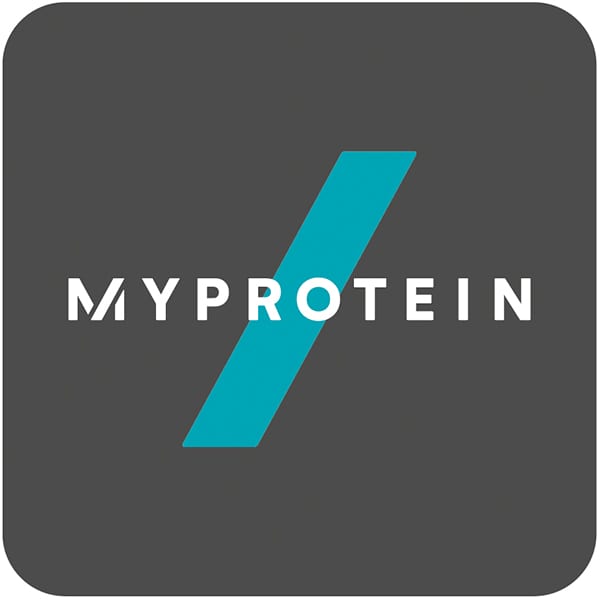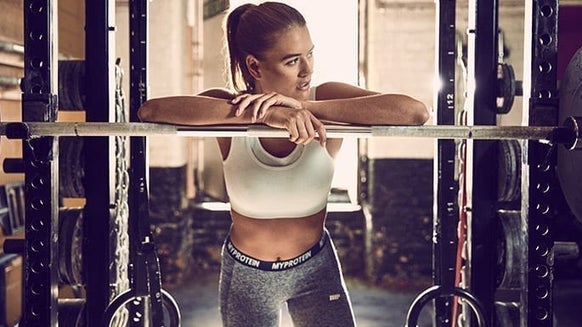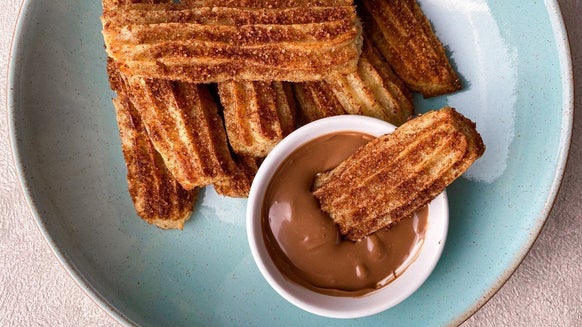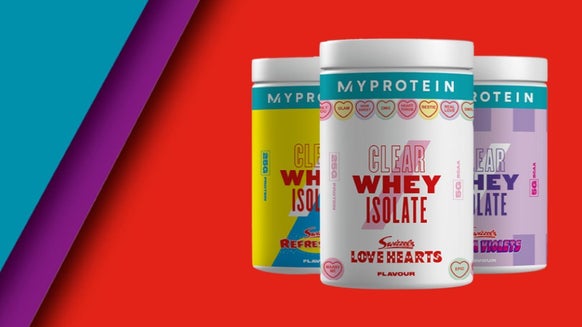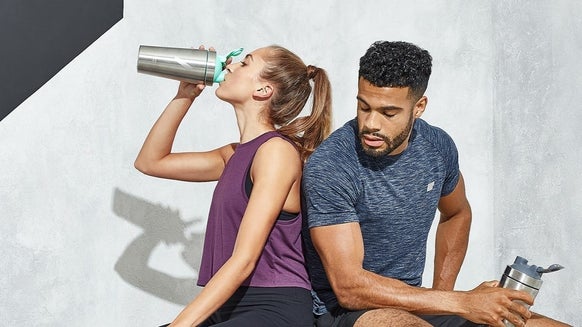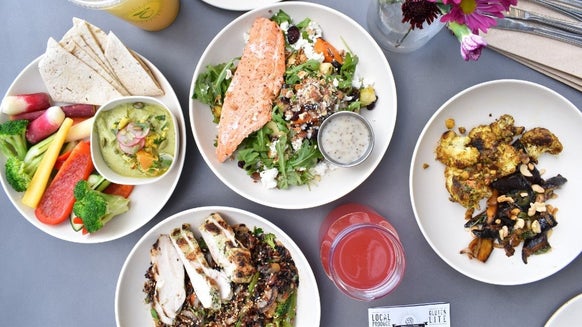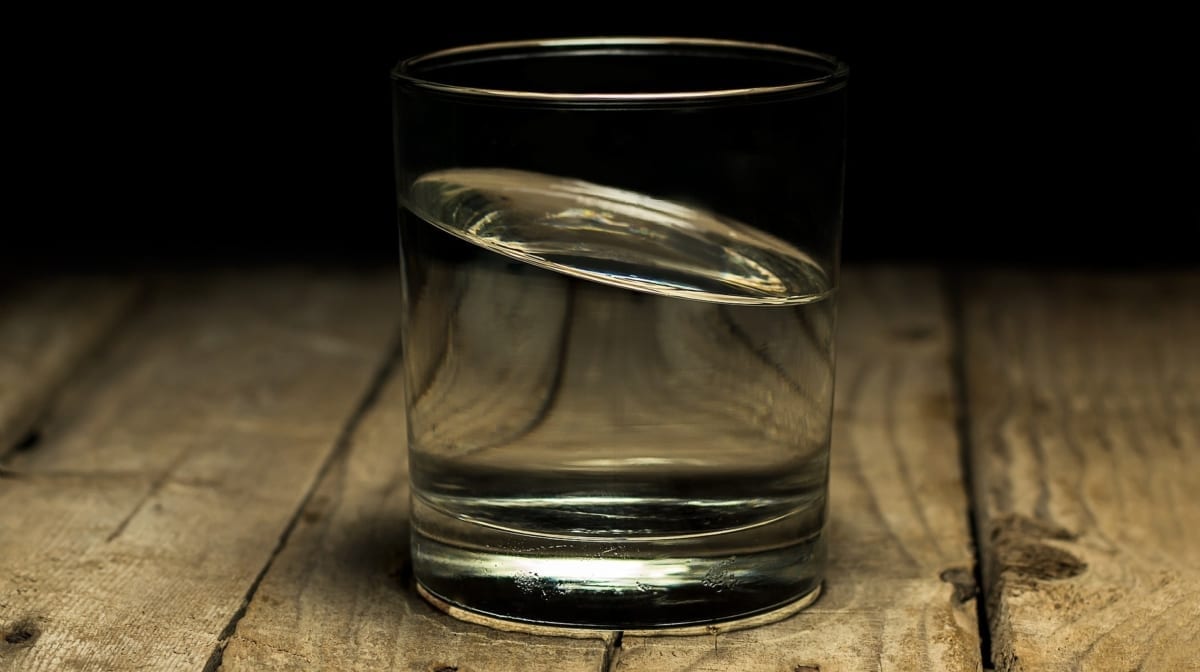
The healthiest amount of water you should drink on a daily basis depends entirely on you as an individual, but there are a lot of rumours going around that drinking more water – and even going on water-only fasts – can actually help you lose weight. But how much truth is there to that, and is it good for you?

How Much Water Should You Drink?
If you search long enough or ask enough people, you'll hear all kinds of numbers for the amount of water you need to drink each day. There's no one size fits all, however. How much water you should drink depends on various factors:
- How active you are
- How much you sweat
- Your size
- Your weight
- Your age
- If you're pregnant
For older people and breast-feeding mothers especially, it's important that you take extra special care as to how much water you drink every day.
As a general rule, if you feel any of the following symptoms, then it may be a result of dehydration, so it's therefore best to drink a glass of water:
- Thirstiness
- Headaches
- Hunger
- Bad moods
- Tiredness
- Difficulty concentrating
With regards to drinking enough water to lose weight, 1-2 litres per day is likely to be enough, or 4-8 glasses. It’s a good idea to drink a glass before each meal, too. This will help to tell the difference between what’s hunger and what’s thirst.
Benefits of Drinking Water for Weight Loss
It Burns Calories
When you drink water it can increase the amount of calories that you burn at rest. This is called water-induced thermogensis, which some studies have found increases resting energy expenditure by up to 30 per cent within ten minutes of drinking water. Your resting energy expenditure is the amount of calories the body burns while at rest, which can last for up to an hour after drinking water.
It Helps with Cravings
Drinking water can also help to curb your appetite. Often, your body wants water but you may think that you are hungry. And so, by drinking a glass of water before a meal, you may find that you don’t need quite as big a serving of food as you had thought. This goes for snacking, too. Next time you’re raiding the cupboards for a quick snack, drink a glass of water and see if that helps with your cravings.
In this way, drinking more water has been proven to help with weight loss by helping to reduce overall calorie intake in a healthy way. Remember that water is calorie-free, unlike soft drinks, which are often full of sugar.
Drinking Water to Lose Weight
OK, so it all sounds too good to be true. Can you really just drink a couple of litres of water a day to lose weight? The quick answer is 'it can help, yes'. To make sure you’re doing it as efficiently as possible, here's a quick guide on the best way to do it:
Drink it Cold
Research suggests that cold water can have an even greater effect on the amount of calories your body burns. This is because even more energy is required to bring the cold water up to body temperature when you consume it.
Water First, Food Second
This doesn’t mean that you should drink water instead of eating, it means drinking a tall, cold glass of water before you reach for a snack and before each meal. It could make all the difference with snacks you don’t need and second servings that you don’t really want.
Drink Water, Not… *insert other drink here*
Lots of your favourite drinks, including soft drinks, may be full of calories. Water isn’t, so by replacing other drinks with water, this could be a good place to start cutting the calories to lose weight. If the idea of water alone all day every day is sounding a bit grim, worry not – we’ve provided a few permissible ingredients further down.
Work Out
By increasing your water intake, you'll be able to work out for longer. Your muscles won’t cramp as badly, your joints will be lubricated and capable of longer endurance, and by being able to work out for longer, this will mean that you can exercise more and lose weight.
What is Water Fasting for Weight Loss?
Water fasting involves having nothing but water for the duration of your water fast, which could be a few days, and it comes with risks. It comes recommended by some for times when you are able to utterly rest and the pace of every day life doesn’t require the calories to keep you going. The step before this, the 'pre-fast', may involve a couple of days of only water and fruit and vegetables.
You should talk to your doctor so that you fully understand the risks of living off nothing but water. It involves consuming no vitamins, proteins, carbs, fats, or supplements. In fact, none of the essential nutrition your body needs to function at its best.
Other Weight-Loss Drinks & Ingredients
OK, so drinking nothing but water all of the time might be hard to imagine – let alone stomach. You’ll be pleased to know that there are several other ingredients that you can creatively use to have as drinks that will not only be tastier, but have nutritional value too.
Grapefruits & Pomegranates

Grapefruit can assist weight loss by improving sensitivity to insulin and post-glucose insulin levels, while pomegranates are an anti-inflammatory and can regulate blood pressure, both of which can lead to weight loss.
Pineapples

Due to their bromelain content, pineapples can help to digest food and fight inflammation.
Cinnamon

Cinnamon has been shown to lower blood glucose and suppress appetite.
Limes

Brimming with vitamin C, limes can also regulate your hunger pains and body weight.
Ginger

Ginger is full of gingerol, which can help with all manner of digestive and bowel issues.
Take Home Message
At the start, middle and end of your day, your body will always need water, and you'll need even more when you're especially active. Water is calorie-free, and drinking around 2 litres a day is proven to curb your appetite, kill cravings, help you exercise for longer and boost your metabolism – all of which can help you to cut calories and lose weight.
